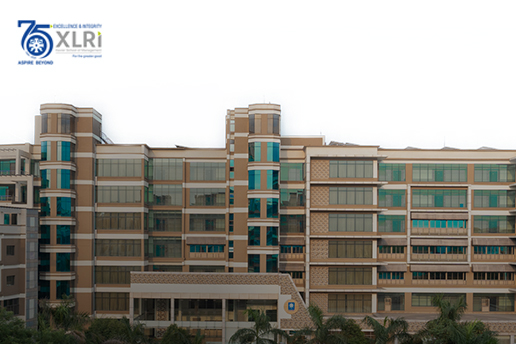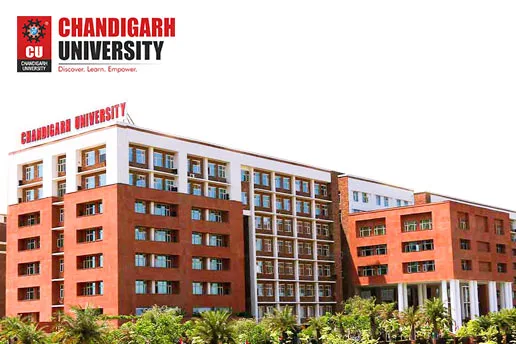What You Need to Know About Pursuing an MBA in HR Management?
Table of Contents

Thinking of building a career in HR? An MBA in Human Resource Management in 2025 can provide a solid foundation for a rewarding career. With rapid changes in the work environment, including new technologies, remote teams, and employee-first cultures, HR professionals have gained much more significance than in the recent past.
An MBA in HR management is not a hire and fire program that focuses on managing people, building teams, solving workplace issues, and company growth through intelligent people strategies. A fresh graduate or a working professional can choose this course for a career switch or enhancement of an existing opportunity; this specialization has opened up possibilities in corporate as well as consultative roles.
So, here in this blog, we list all the information you need to know about the MBA in Human Resource Management Degree, including course details, eligibility, career scope, and the prime benefits of pursuing it in 2025. If you’re still thinking about whether Human Resource Management is going to be worth it for you, then keep reading to see how this course will shape your prospects.
What is an MBA in HR Management?
The MBA in HR management program is two years, during which key human resource topics such as recruitment, employee relations, compensations, labor law, training and development, organizational behavior, etc., are taught.
The program offered for HR Management MBA programs bridges the antithetical fields of generic business administration sciences and specific HR subjects, so as to keep the graduates sufficiently prepared to act in a strategic capacity in workforce management for companies.
Core Subjects in HR Management MBA Programs
An MBA degree in Human Resource Management covers the standard business topics along with extra training in HR. The program is set up to deliver proficiencies to students on both strategic and operational levels of HR that are so crucial in today’s competitive job scenario. Below are some of the core subjects you generally expect to be studying in an HR Management MBA program:
Core Subject | Description |
Human Resource Management | A brief overview of recruitment, training, and dealing with employee matters in HR |
Organizational Behavior | Looking at how people behave individually and as groups in an organization. |
Talent Acquisition & Retention | Planning a recruitment approach to find the best people and keep them working for the company |
Employee Relations & Labor Laws | Covers labor regulations, workplace policies, and conflict resolution. |
Compensation & Benefits | Design and management of salary structures, incentives, and employee perks. |
Training & Development | Creating and managing employee learning and growth programs |
Performance Management Systems | Methods to evaluate, guide, and improve employee performance |
Strategic HR Management | Working towards the goals of the company as a whole |
Workforce Planning & Analytics | Using data and forecasting to manage workforce needs effectively. |
Leadership & Team Management | Building leadership skills and managing diverse, high-performing teams. |
Scope of MBA in Human Resources: Careers and Growth
There is a wide range of topics covered in an MBA in HR management and things keep changing and growing. Major scaling up of companies and changing industrial patterns have put an excellent demand for HR professionals. Here are the major job profiles one can take up after an MBA in HR management:
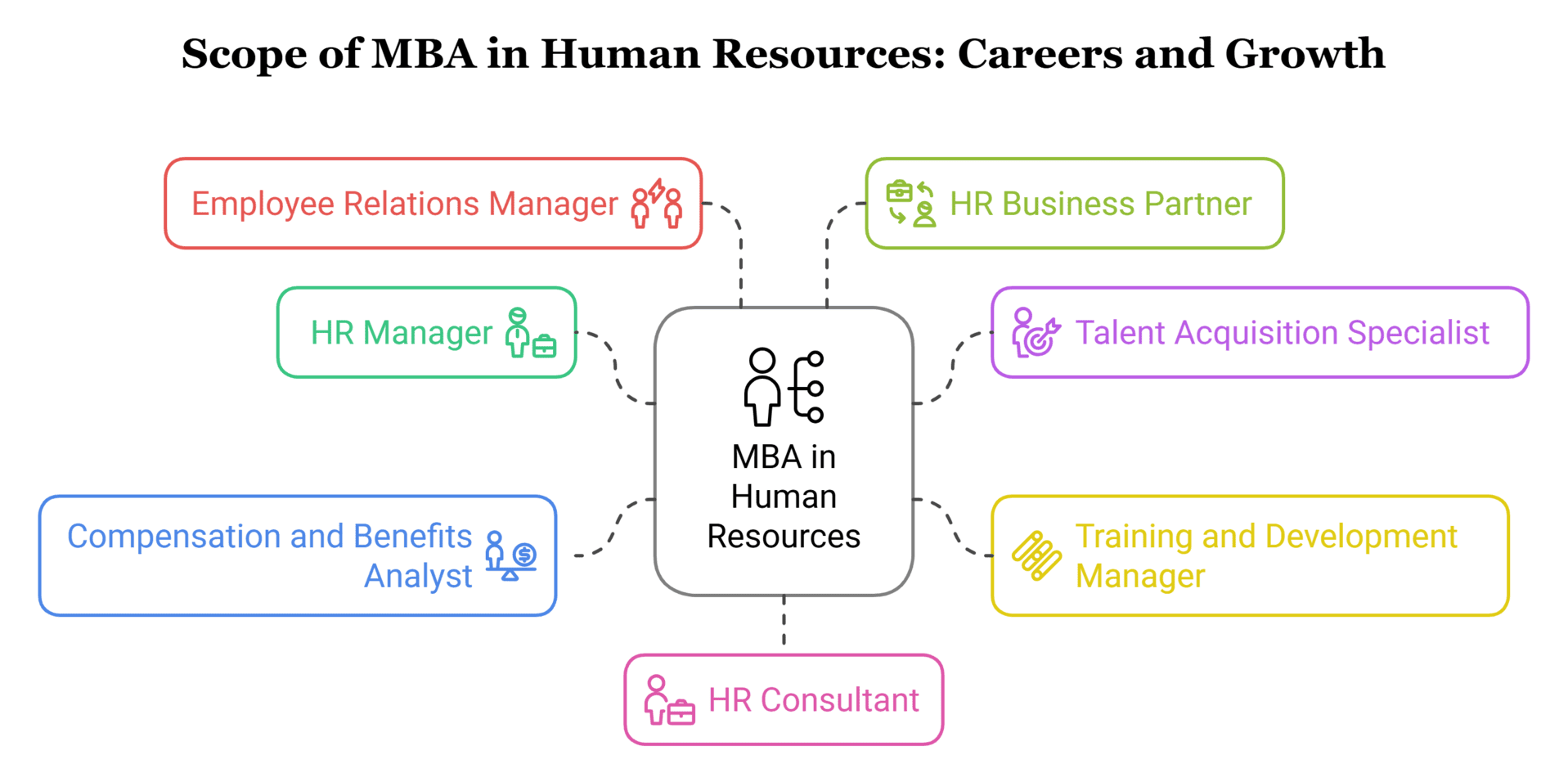
- HR Manager
Employee relations, company policies, and the overall HR strategy. HR Managers align HR goals with business objectives.
- Talent Acquisition Specialist
Hiring the right talent, interviewing candidates, and employing employer branding strategies.
- Training and Development Manager
Upgrading the skills of employees and managing learning programs inside an organization.
- Compensation and Benefits Analyst
They are the ones who design the salary structures, incentive plans, and employee benefits.
- Employee Relations Manager
Employee engagement, conflict resolution, grievance handling, and disciplinary procedures.
- HR Business Partner
Acts as a strategic business partner with business units to align workforce planning with company goals.
- HR Consultant
Consults companies externally to resolve issues in talent management, HR transformation, and compliance.
Industry-Wise Opportunities After MBA in HR
One of the biggest wins for MBA in HR management students pursuing Human Resource Management is the prize of flexibility in the industry that they wish for. After all, skilled HR specialists are required in every industry- from tech through finance to healthcare and even media – to care for their people, help create strong teams, and ensure organizational growth.
In 2025, HR roles will no longer be limited to hiring and employee paperwork. Organizations are out for strategic HR leaders from data-driven hiring to an inclusive workplace culture. The good part is that with a degree in Best MBA in HR Management, you will have opportunities in almost every industry, each with its own set of challenges and interesting career opportunities.
So industry-wise, which major would hire HR personnel, and what jobs can you expect in these?
Industry | Career after MBA in HR Management | Key Responsibilities |
IT & Technology | HR Business Partner, Talent Acquisition Specialist, HR Manager | Hiring tech talent, managing dynamic teams, and performance management |
Banking & Finance | Compensation Analyst, Training Manager, Employee Relations Officer | Payroll, compliance, leadership training, and benefits administration |
Manufacturing & Engineering | Industrial Relations Manager, HR Officer, Compliance Manager | Labor law compliance, union relations, and workforce safety |
Retail & E-commerce | Recruitment Manager, HR Generalist, Learning & Development Manager | High-volume hiring, employee engagement, and staff training |
Salary Trends After MBA in HR Management
A lot of people think about their future pay when selecting the Best MBA in HR Management area to focus on, and that makes perfect sense. Because companies need more HR professionals in 2025, the pay packages for those with matching skills, experience, and thinking are rising.
The amount of money you make may depend on your industry, the specific job you have, your location, and the colleges offering the Best MBA in HR Management, as well as some other factors.
Job Role | Average Annual Salary (INR) | Experience Level |
HR Executive | ₹3 – ₹5 LPA | Entry-level / Freshers |
HR Analyst | ₹4 – ₹6 LPA | Entry-level / 0–2 years |
Talent Acquisition Specialist | ₹4.5 – ₹7 LPA | 1–3 years |
HR Generalist | ₹5 – ₹8 LPA | 2–4 years |
Training & Development Manager | ₹7 – ₹12 LPA | Mid-level / 4–6 years |
Compensation & Benefits Manager | ₹8 – ₹14 LPA | Mid to Senior level |
HR Business Partner | ₹10 – ₹18 LPA | 5–8 years |
HR Manager / Senior HR Manager | ₹10 – ₹20+ LPA | 6–10 years |
Head of HR / CHRO | ₹25 LPA and above | 10+ years / Senior leadership |
Source: Glassdoor
Unlock Your Career Potential with an Online MBA from Symbiosis SSODL
The Online MBA Degree Programme from Symbiosis School for Online and Digital Learning (SSODL) is made for people who aspire to enhance their strategy planning and succeed as top professionals within companies. The flexible and job-relevant course helps students get ready to lead in modern, fast-changing businesses.
With an MBA in HR Management, you are trained in important HR tasks like recruitment, managing performance, compliance with laws, and involving staff, which makes you a top choice for any business. HRM is perfect for individuals looking to help create the right work culture and set employees up for success as the world of work changes.
Gaining this online MBA in HR Management program means you can both enhance your education and gain a greater advantage in finding work. Position yourself for more responsibility in your sector by joining SSODL.
Created by skilled business school teachers and delivered by experienced professors from Symbiosis, the curriculum is amongst the best available today. People seeking a career change toward management or a promotion will find this program an excellent starting point for their career development.
Program highlights:
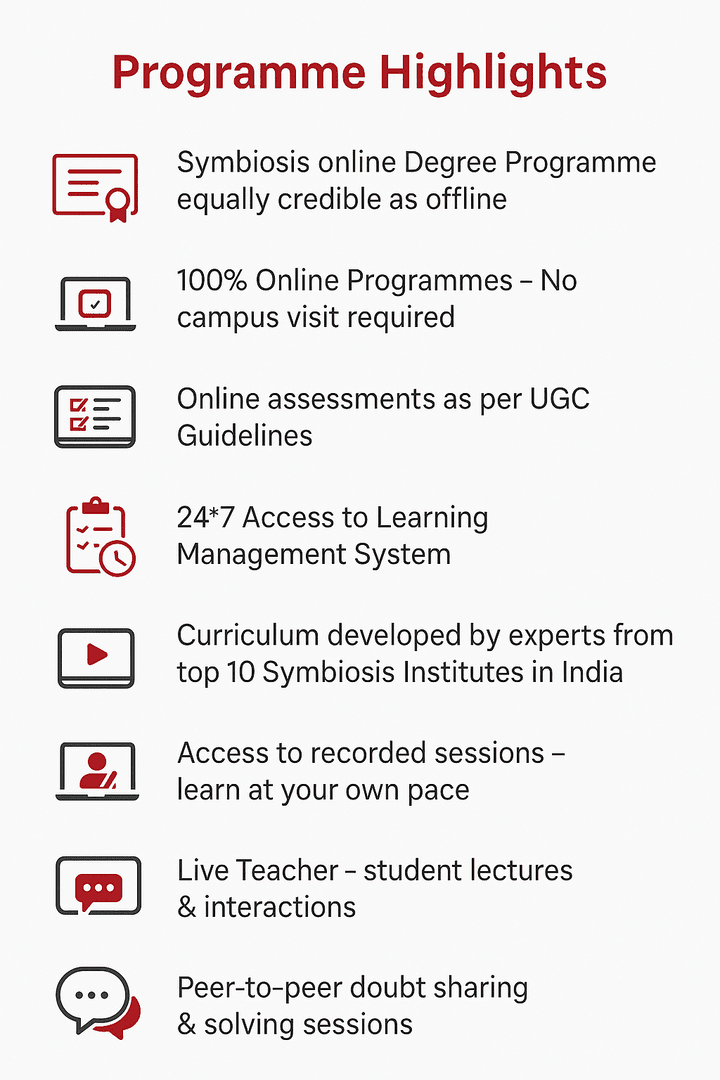
Fee Structure:
- Application Fee INR 1,000/
- Programme Fee (Indian): INR 3,15,000/-
- Programme Fee (International): USD 2065
Conclusion: What is the Advantage of Jaro Education?
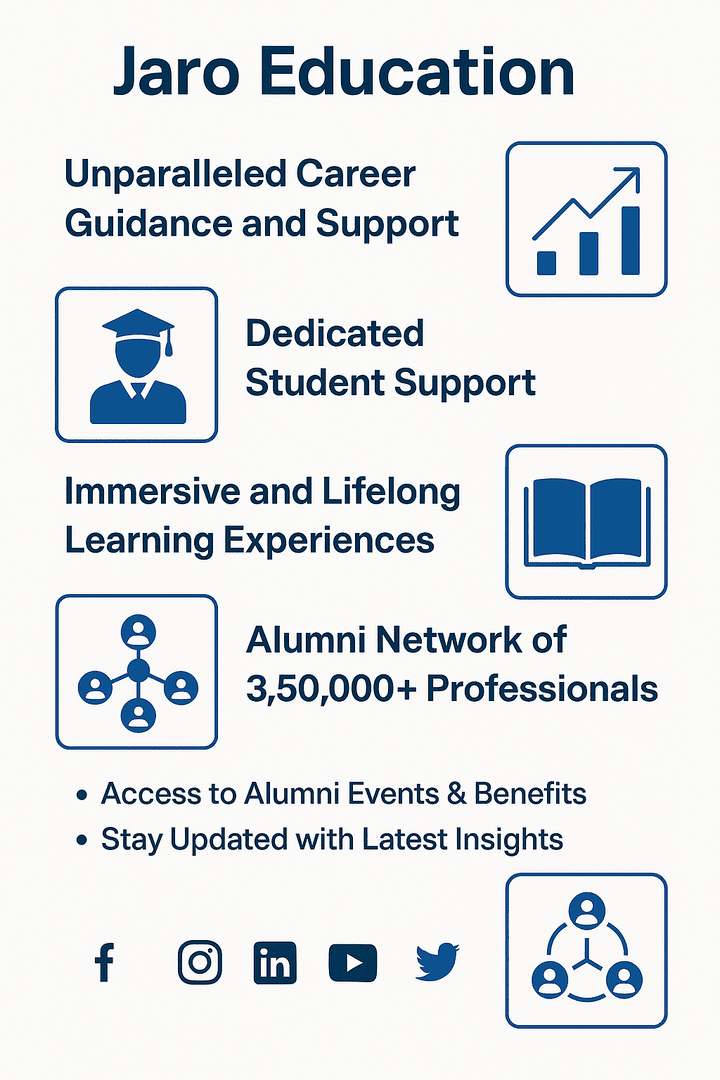
Jaro Education is the most trusted Indian company for online higher education. In the last 15+ years, Jaro Education has used its strong expertise in executive education to help more than 3 lakh professionals improve their careers with learning centers in India, Singapore, and the USA. The enterprise intends to assist entrepreneurs & working professionals from the beginning of their careers to the top executive level in all industries with its executive education programs. Because of how much it has influenced online education in the country, Jaro Education now offers 150+ management, technology, and techno-functional programs in partnership with highly regarded institutes.
Frequently Asked Questions
What is an MBA in HR Management?
An MBA in HR Management is a two-year postgraduate program focused on developing leadership, strategic, and administrative skills in human resource functions like recruitment, employee relations, compensation, training, and labor laws.
What are the eligibility criteria for an MBA in HR?
Candidates must have a bachelor’s degree in any discipline with a minimum of 50% marks (45% for reserved categories). Admission often requires entrance exams like CAT, XAT, NMAT, or SNAP, depending on the institute.
Is an MBA in HR a good career option?
Yes, an MBA in HR is a rewarding career option with increasing demand across industries. It offers opportunities in recruitment, talent development, organizational strategy, and employee engagement.
What are the top colleges for an MBA in HR in India?
Leading institutes include:
- XLRI Jamshedpur
- TISS Mumbai
- IIM Ranchi
- MDI Gurgaon
- SIBM Pune
What is the average salary after MBA in HR?
Fresh graduates can earn ₹4–6 LPA. Mid-level professionals earn ₹7–12 LPA, and senior HR leaders can earn ₹20 LPA or more based on experience and industry.









